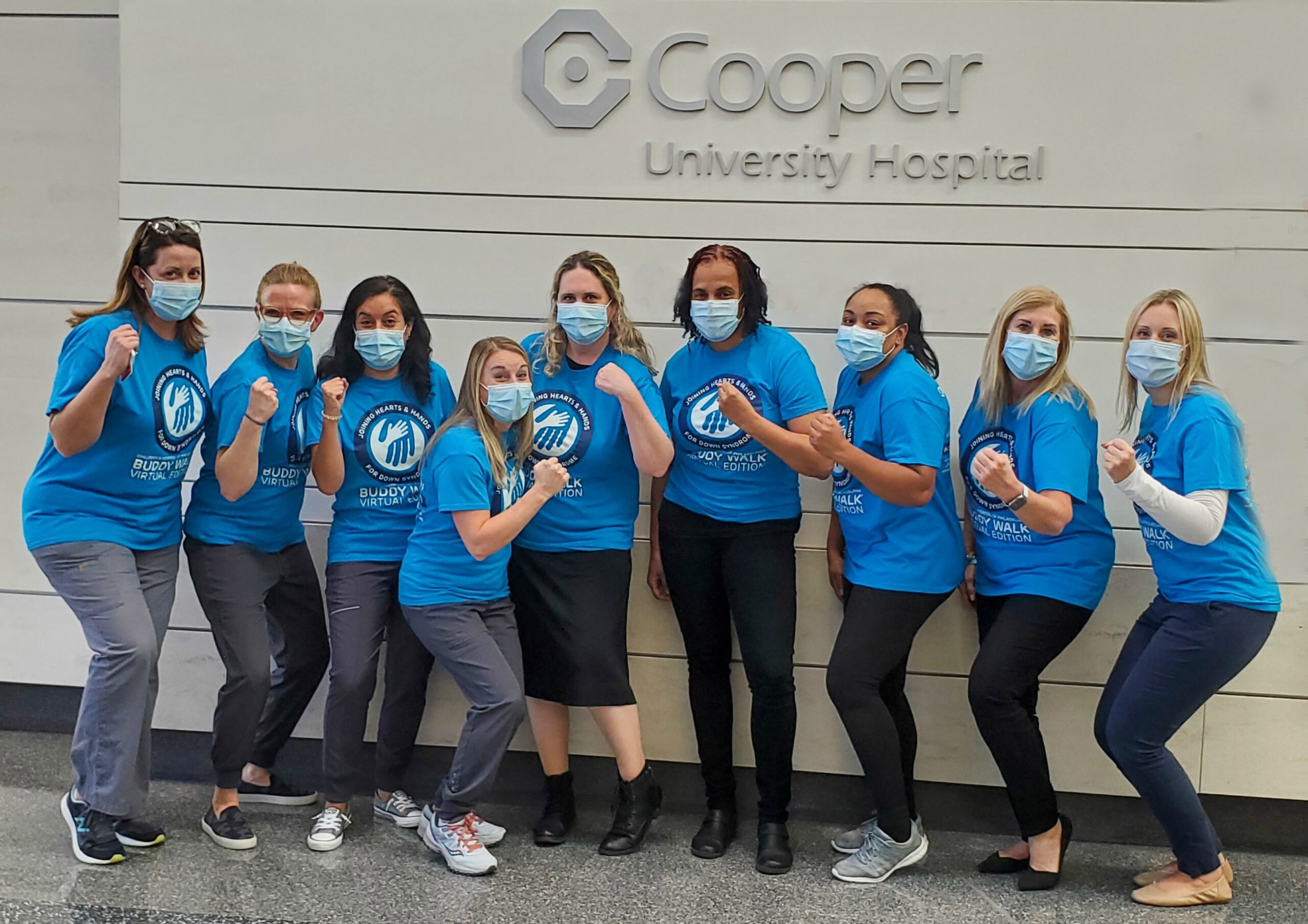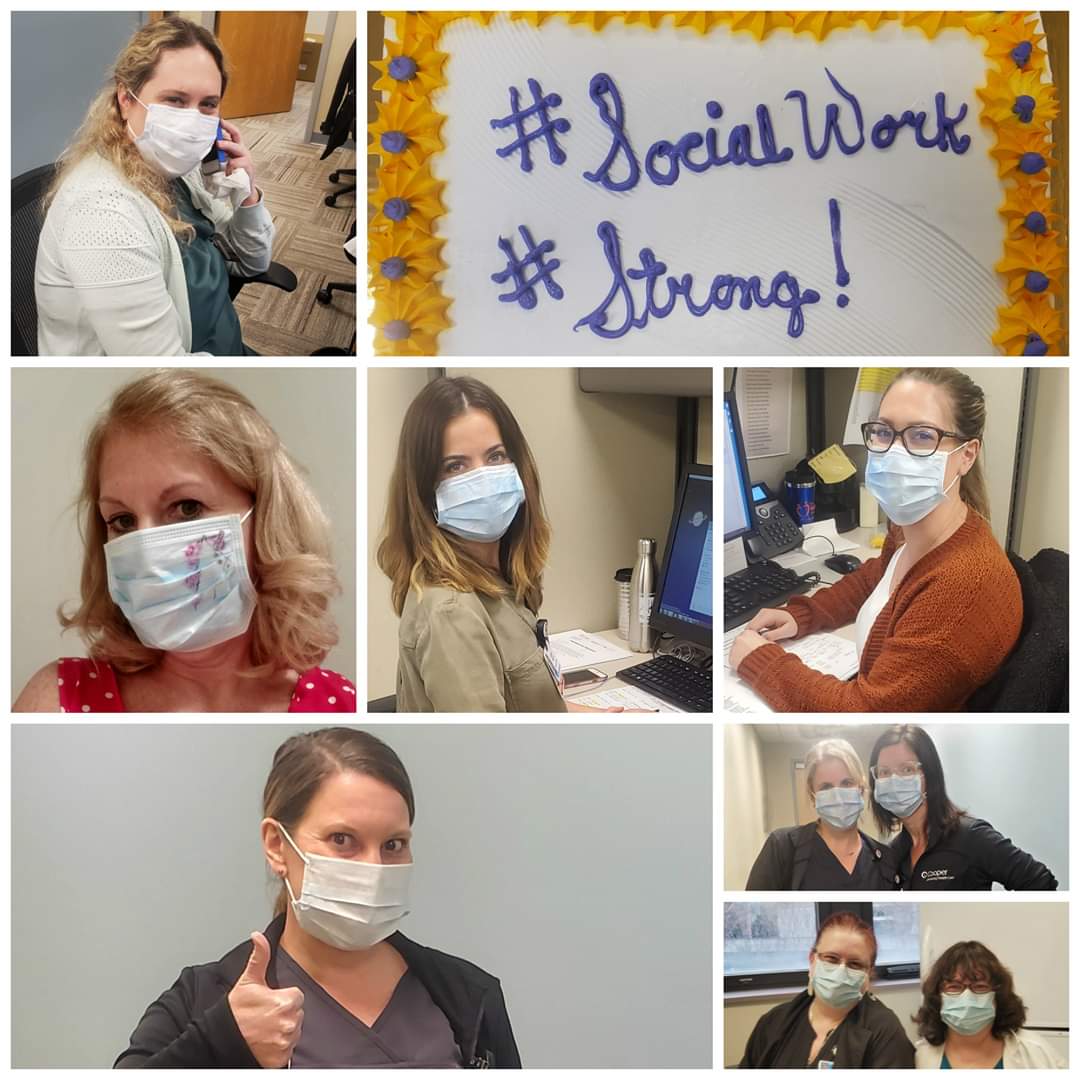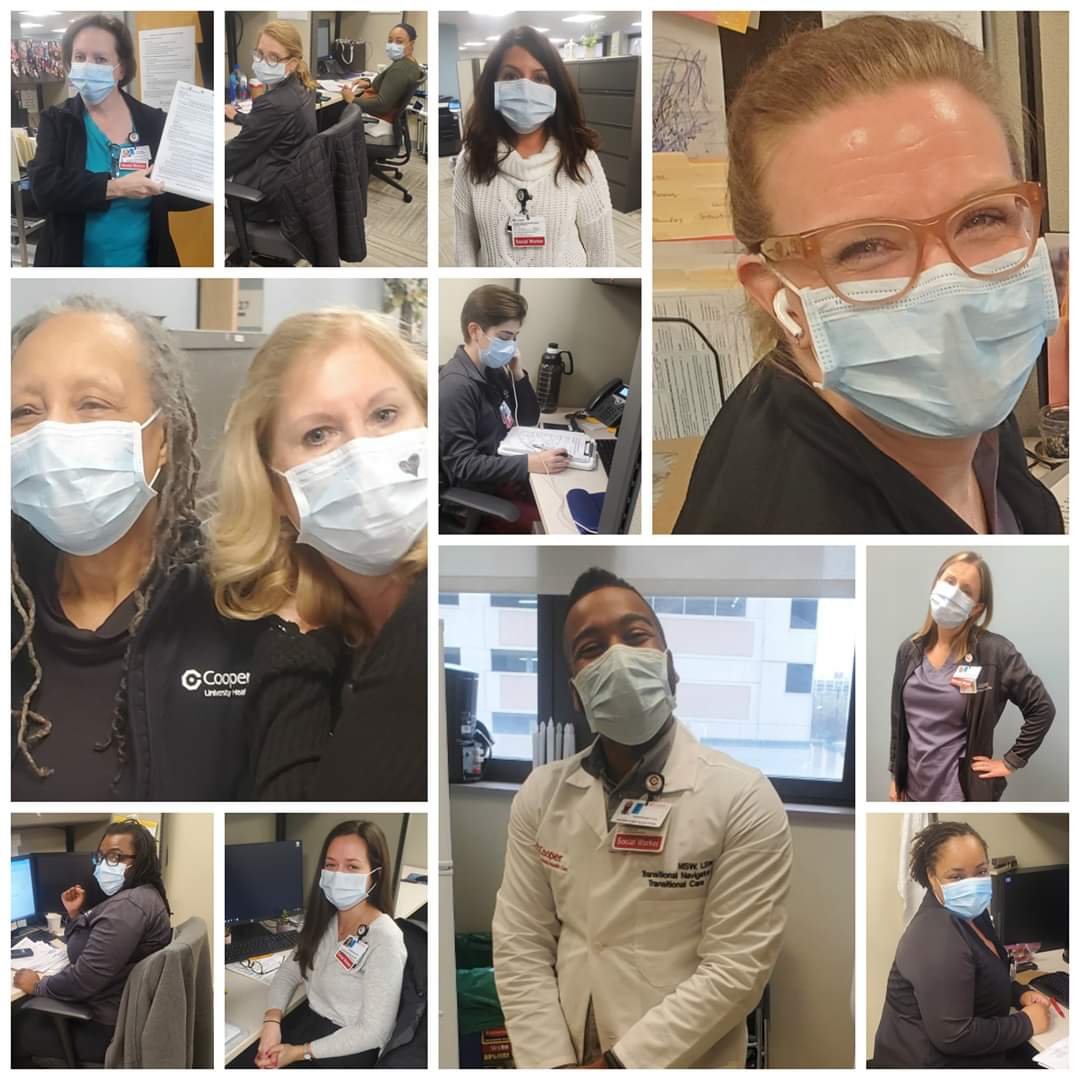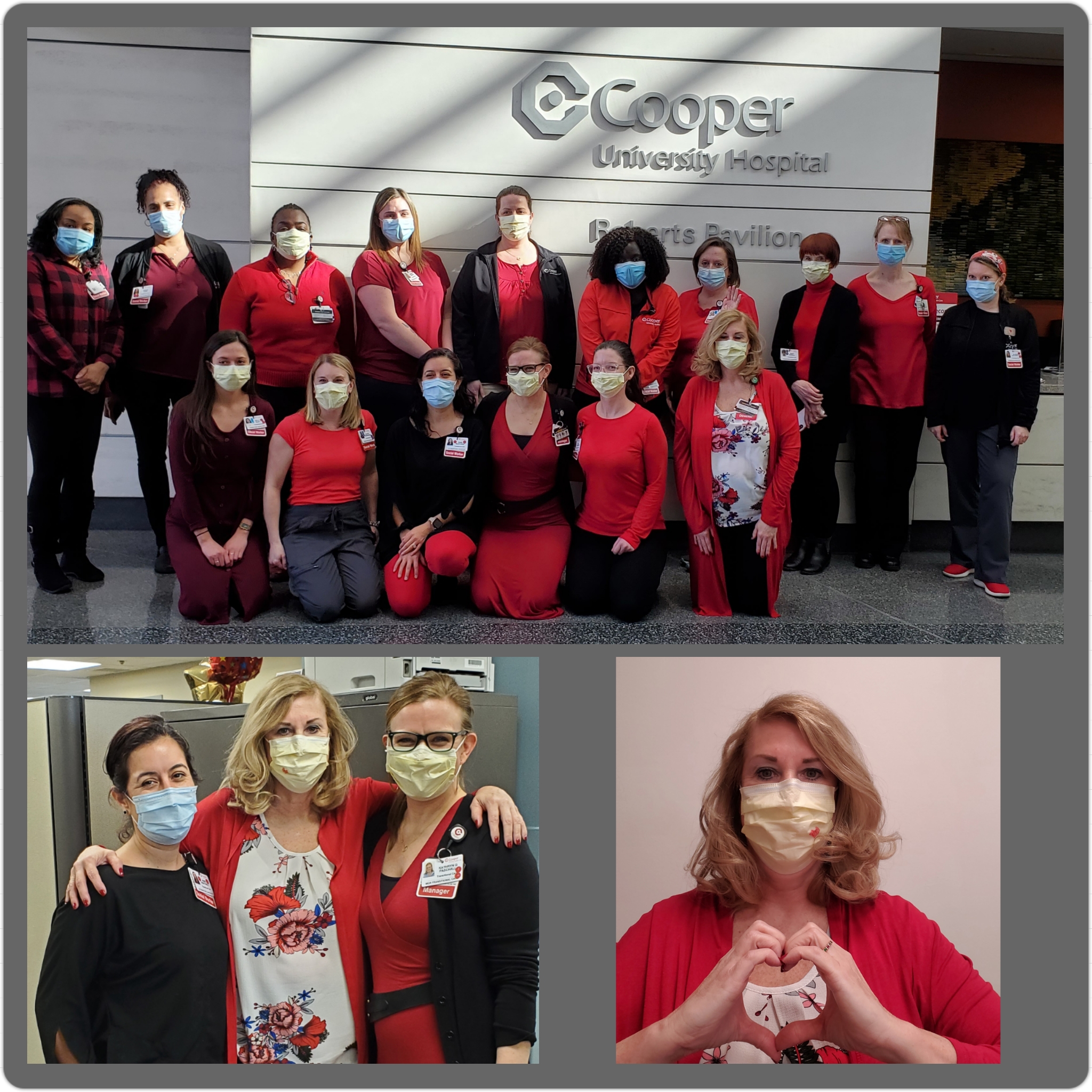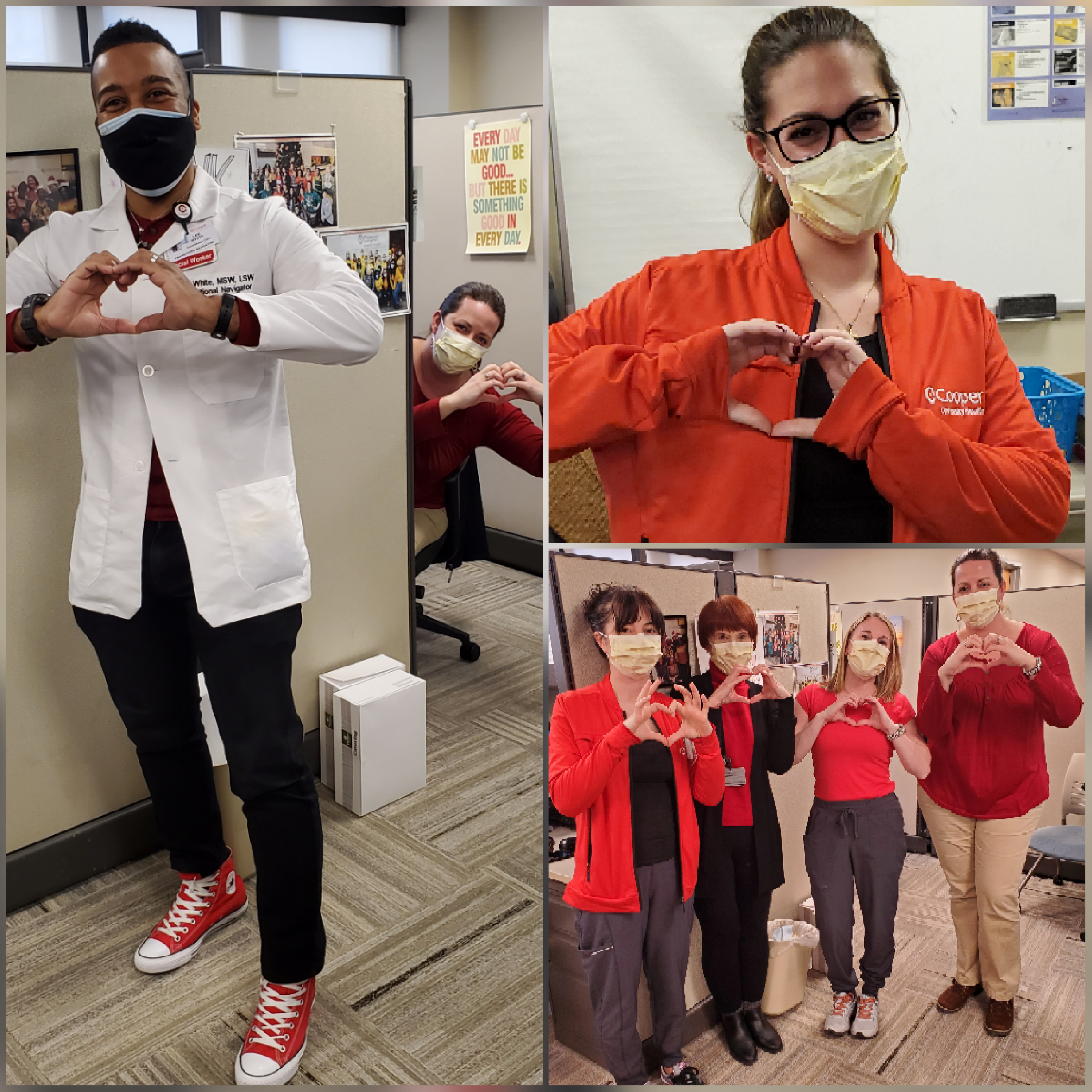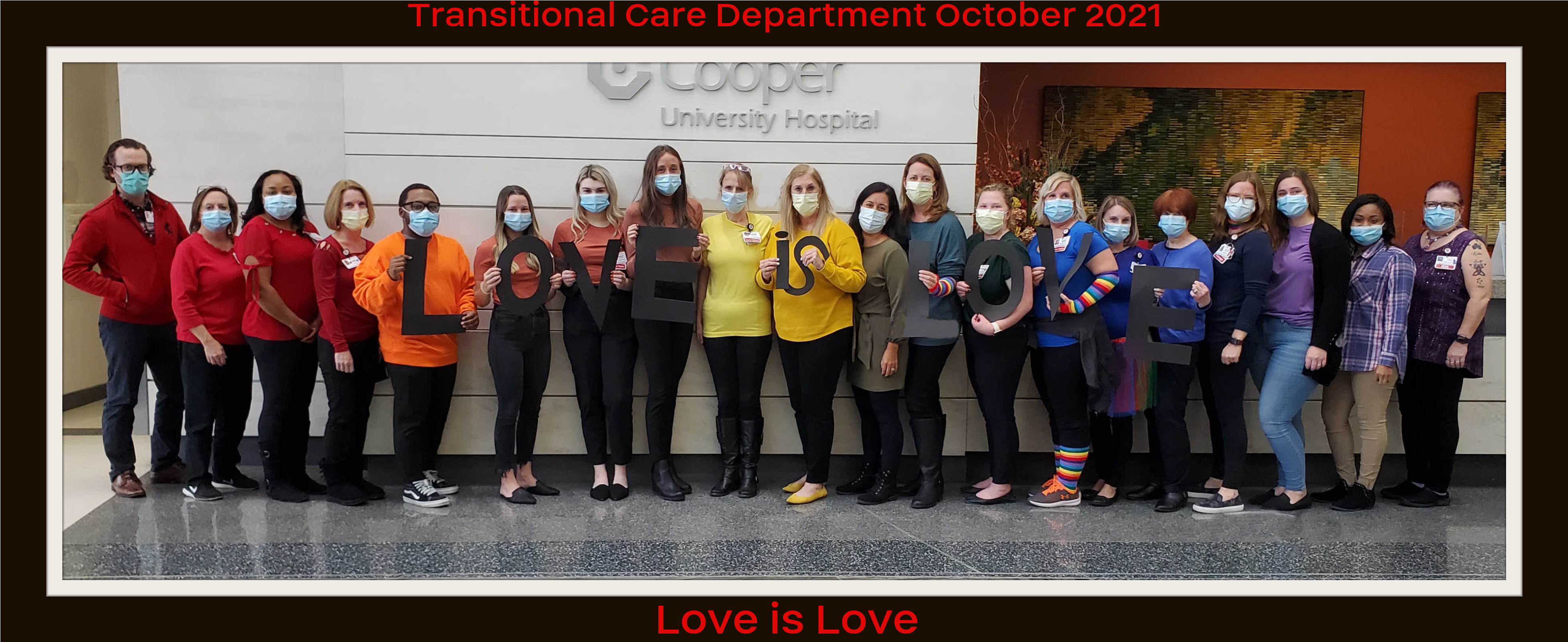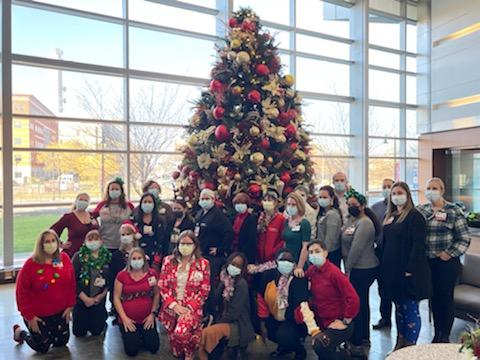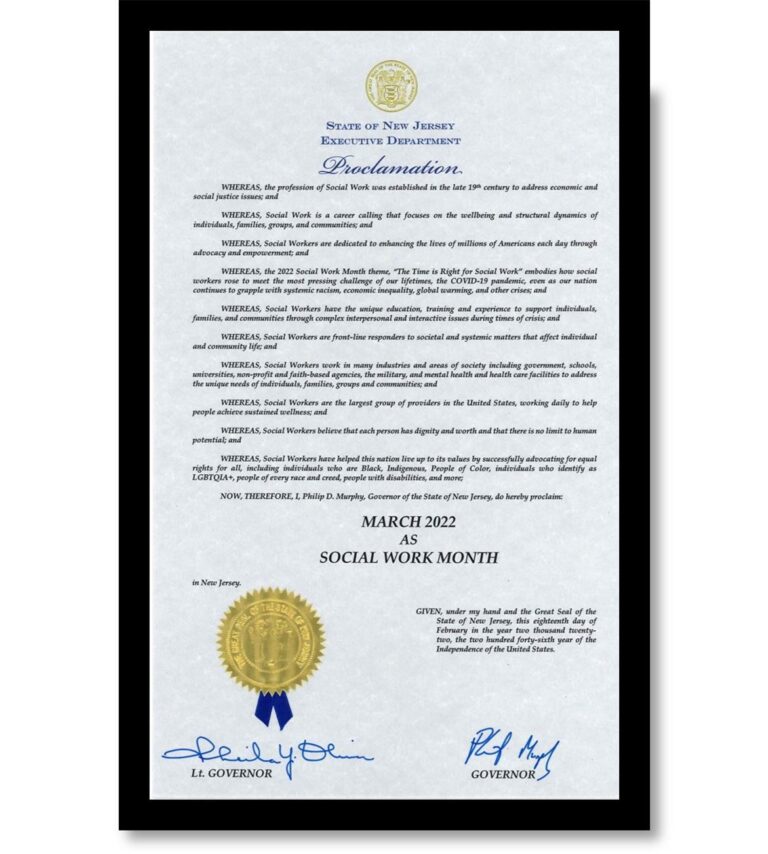 March is Social Work Month, and a great opportunity to learn about the important teams who work with patients and families to provide support during life’s most challenging moments. In New Jersey Governor Phil Murphy’s proclamation of March 2022 as Social Work Month in New Jersey, he acknowledged the impact of social workers on individuals and our communities at large: “Whereas the 2022 Social Work Month theme, ‘The Time is Right for Social Work’ embodies how social workers rose to meet the most pressing challenge of our lifetimes, the COVID-19 pandemic, even as our nation continues to grapple with systemic racism, economic inequality, global warming, and other crises … Social workers have helped this nation live up to its values by successfully advocating for equal rights for all, including individuals who are Black, Indigenous, People of Color, individuals who identify as LGBTQIA+, people of every race and creed, people with disabilities, and more.”
March is Social Work Month, and a great opportunity to learn about the important teams who work with patients and families to provide support during life’s most challenging moments. In New Jersey Governor Phil Murphy’s proclamation of March 2022 as Social Work Month in New Jersey, he acknowledged the impact of social workers on individuals and our communities at large: “Whereas the 2022 Social Work Month theme, ‘The Time is Right for Social Work’ embodies how social workers rose to meet the most pressing challenge of our lifetimes, the COVID-19 pandemic, even as our nation continues to grapple with systemic racism, economic inequality, global warming, and other crises … Social workers have helped this nation live up to its values by successfully advocating for equal rights for all, including individuals who are Black, Indigenous, People of Color, individuals who identify as LGBTQIA+, people of every race and creed, people with disabilities, and more.”
Our thanks to Catherine Morrison, LCSW, ACM-SW, Director of Transitional Care, Sandi Voynow, LSW, Social Worker with our Women’s Care Center, and Ellen Smith Hearon, CSW, Outpatient Social Worker with Children’s Regional Center at Cooper, for sharing their insights into what people should know about the reach and impact of social workers at Cooper.
What is the role of a social worker at Cooper?
“Social workers in the hospital setting are at the front lines of helping patients and their families navigate and cope with life’s most challenging moments while they are in the midst of a crisis,” explains Catherine Morrison, LCSW, ACM-SW, Director of Transitional Care at Cooper. “Hospital social workers provide patients and families with information about the resources available to them to cope with the emotional, financial, and social needs that arise with a diagnosis and hospitalization.”
“Pediatric social workers help the caregiver, to identify, adjust to, and cope with, the stress of daily life caused by their child’s medical condition,” adds Ellen Smith Hearon, CSW, Outpatient Social Worker with Children’s Regional Center at Cooper. “Whether the need is in the area of parenting skills, family relationships, or direction for helping your child deal with the situation, our social workers will be able to provide expert guidance in these areas. Because medical terminology can often sound confusing, social workers can help interpret the information into understandable terms. Social workers act as a liaison between the family and the clinical staff. If you have questions or concerns about what you are told, the social worker can help you. Education for the family is available on how to be an informed and active participant in your child’s medical care.”
“What I love most is that every single day I get to help multiple people,” shares Sandi Voynow, LSW, Social Worker with our Women’s Care Center. “I’m there for my patient who might be grieving and I’m there for my patient who might be celebrating a success. I’m there to assist in problem solving and I’m there to offer words of encouragement. I am grateful to have the opportunity to help so many! I am thankful to work with an incredible staff that utilizes my skills in order to benefit our patients.”
What are some ways that social workers help their patients?

Toni Mathis and Ellen Hearon from Children’s Regional Hospital at Cooper, and Sandi Voynow from Cooper’s Women’s Care Center.
In the pediatric setting, our social work team can provide patients and their families with community resources for financial assistance, behavioral health services, housing, medical transportation, visiting nurse arrangements, WIC information, and durable medical equipment (DME) or supplies, such as g-tube supplies, trach supplies, diapers and incontinent supplies for children who are developmentally delayed, and sometimes special formulas. “Social Work also assists families in locating resources for basic needs, such as food, clothing, and emergency shelter if necessary,” adds Ellen. “Outreach education is provided on an ongoing basis to schools and community agencies that provide services to children with a medical condition. Our social workers can help facilitate communication with your child’s school on matters related to their medical condition.”
“At the Jaffe Family Women’s Care Center, we have a full-time licensed social worker on staff who is available to meet with patients on an ‘as needed’ basis,” shares Sandi. “The social worker is there to offer support, encouragement, and sometimes offer a shoulder to cry on. Social work services include brief strength-based therapy, connecting patients with resources for transportation, food, parenting related programs, behavioral med services, addiction medicine services, and domestic violence support. Additionally, she meets with every new OB to assess what their needs might be during their pregnancy and address any barriers to care. She helps our working patient’s manage disability, maternity leave and bonding time, often having to advocate on patient’s behalf to get them their full post-partum benefits. The social worker at the WCC has built relationships with local community agencies. This allows for collaboration with Community Health Workers who offer further support to our patients.”
“As an advocate for the patient, a social worker is involved with their discharge planning process,” Cathy says. “Social workers work one-on-one with patients and their families to plan for life after their hospital stay. This includes linking patients with social service providers and ensuring that all patients’ needs are met. Social workers do all of this with compassion and empathy, in a way that is inclusive of all people.”
How can a patient connect with a social worker?
Hospital-based care: Any patient or their family can request to speak with one of our team by calling the Transitional Care Department at 846.342.3270, and they will be put in contact with the individual who covers their unit.
Children’s Regional Hospital at Cooper: Patients are connected to out-patient pediatric services either by requesting to speak with a social worker at their child’s office visit or being referred to social work by another medical team member. Social Work becomes involved with a patient and their family when a need is identified. Social workers participate in these pediatric programs at our five outpatient locations in Camden, Voorhees, Sewell, Burlington, and Moorestown:
- Allergy/Asthma
- Cardiology
- Child Development Center
- Endocrinology/Diabetes
- Gastroenterology
- General Pediatrics
- Hematology
- HIV
- Infectious Disease Center
- Neonatal Follow-Up
- Neurology
- Nutrition
- PKU
Ellen Hearon, CSW, and Toni Mathis, CSW, are our outpatient social work team at Cooper Pediatrics. Sonja Canter, LCSW, Ruth Abrams, LSW, and Kathy Boswell, CSW, are with our pediatric HIV social work team.
Thank you again to the members of our social work teams who contributed this insight into their roles with us. And thank you to all of our Social Workers at Cooper for the important role you have in the healing and recovery of our patients and their families.

